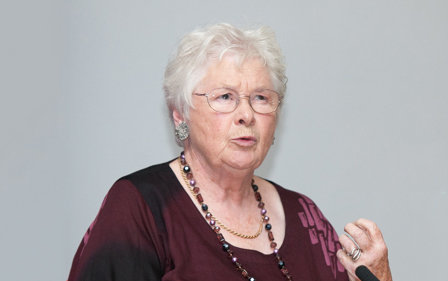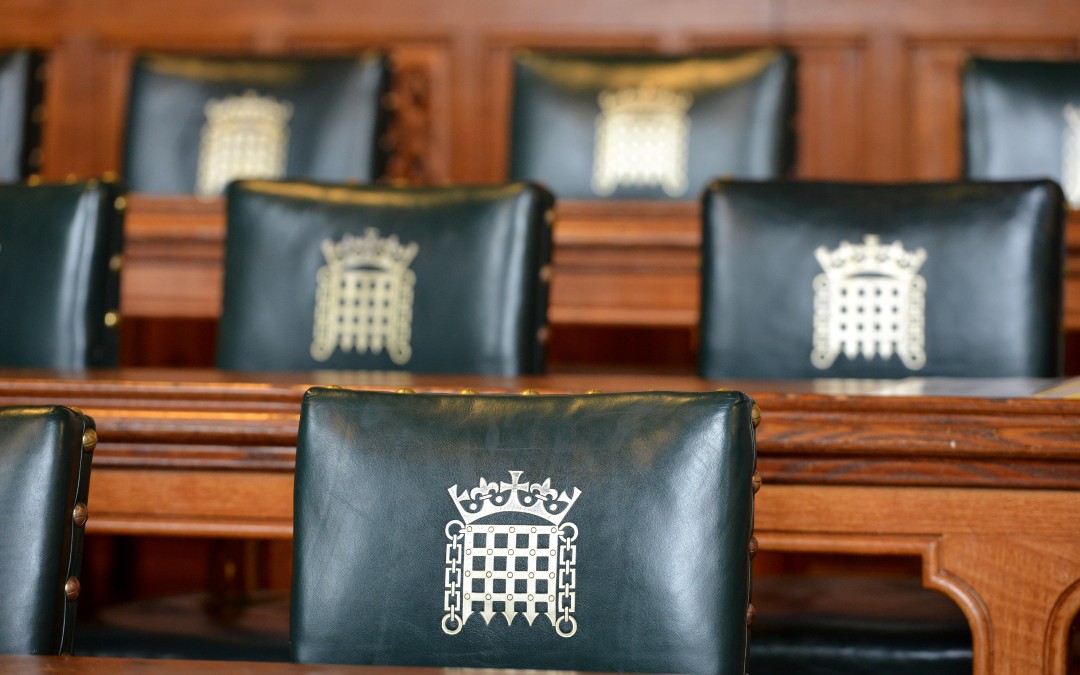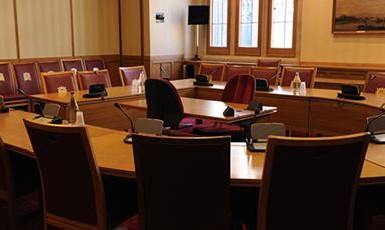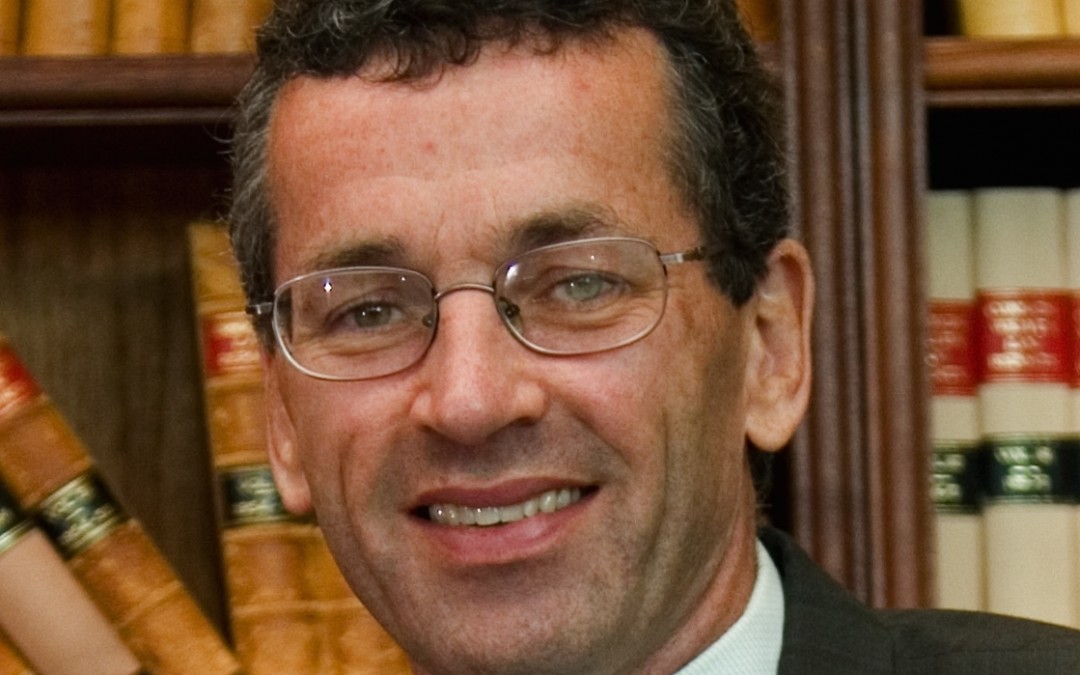
Brexit and Judicial Power
Professor Richard Ekins publishes a new Judical Power Project report on Brexit’s wide implications for the future of judicial power in our constitution. Read the report
Chris McCorkindale: The New Powers of the Judiciary in Scotland – Part II
i The devolution project which saw legislative and executive power transferred from Westminster to Holyrood and from Whitehall to Victoria Quay has been accompanied by enhanced judicial powers. As they relate to primary legislation in the devolved sphere, these new...Event | Brexit and Judicial Power 21.07.16
Policy Exchange is delighted to invite you to a panel discussion of what Brexit means for judicial power in our constitution. Reflecting on the controversial record of the Court of Justice of the European Union and on the recently announced litigation to block...
Richard Ekins: Can the courts block Brexit?
Not everyone is taking last week’s vote well. There have been calls for a second referendum or for Parliament simply to ignore the result. Whatever one thinks about the outcome of the referendum, these are not sensible suggestions, as I argue elsewhere. They are...
Christopher Forsyth: A change of mind on Bradley
Editor’s Note: Last week Policy Exchange’s Judicial Power Project published a report by Dr Jason Varuhas on Judicial Capture of Political Accountability. The Project has invited commentators with a range of views to reply to the report. Some might be expected to be...
Farrah Ahmed: Deference to political accountability mechanisms
Editor’s Note: Earlier this week Policy Exchange’s Judicial Power Project published a report by Dr Jason Varuhas on Judicial Capture of Political Accountability. The Project has invited commentators with a range of views to reply to the report. Some might be expected...
Richard Ekins: A legitimacy crisis in judicial review
Judicial review of executive action is a vital part of the rule of law. The courts rightly hold ministers and other public bodies to the scope of their lawful powers, insisting on procedural fairness and correcting some obvious abuses of power, but aiming always to...
Carol Harlow: A comment on Judicial Capture of Political Accountability
Editor’s Note: Earlier this week Policy Exchange’s Judicial Power Project published a report by Dr Jason Varuhas on Judicial Capture of Political Accountability. The Project has invited commentators with a range of views to reply to the report. Some might be expected...
Richard Kirkham: A reply to Judicial Capture of Political Accountability
Editor’s Note: Earlier this week Policy Exchange’s Judicial Power Project published a report by Dr Jason Varuhas on Judicial Capture of Political Accountability. The Project has invited commentators with a range of views to reply to the report. Some might be expected...
Jason Varuhas: Judicial Capture of Political Accountability
In a Policy Exchange report released today I examine the increasing capture of political accountability mechanisms by courts. Institutions such as the Parliamentary Ombudsman are intended to operate in the political sphere, securing government accountability through...
Judicial Capture of Political Accountability
Download report Judicial Capture of Political Accountability examines the increasing capture of political accountability mechanisms by courts. It focuses upon developments in judicial review of the Ombudsman process, and shows how these developments are emblematic of...
Daniel Greenberg: Human rights and reductio ad Hitlerum
This site maintains an interest not only in the substance of human rights and other law, but also in the manner in which it is debated. A good example of how not to discuss human rights is found in an article by Adam Wagner in The Times of Israel / Jewish News...
Simon Lee: From judge-shaming to judiciousness-sharing
Sir Stephen Sedley, possibly the most radical lawyer to have become a judge in the UK, has pointed out that, ‘Left to journalists, commentary on the law and the legal system is sometimes excellent but frequently jejune and agenda-driven’. Joshua Rozenberg, the...
Graham Gee responds to Joshua Rozenberg: There is no shame in debating judicial power
Joshua Rozenberg’s ‘A judge-shaming list is bad for justice’, published in The Guardian on 12 May 2016. A judge-shaming list is bad for justice Judges shouldn’t be frightened to set precedents. A list of those that have ‘gone too far’ – including...
Lisa Burton Crawford: The limits of Australian administrative law
In 2008, Michael Taggart famously described Australian administrative law as ‘exceptional’. The description has stuck — and it has a hint of the pejorative. It captures a certain sense of frustration if not disapproval: that Australian administrative law has failed to...
Jon Holbrook: Immigration policy is for the people, not the courts
There are two approaches to immigration. The legalist focusses on the migrant, a person seen as bearing legal rights to be asserted against the nation. Legalism sees immigration as primarily a legal issue resolved by lawyers having recourse to law. The democrat...
Richard Ekins and Graham Gee: How not to dismiss human rights law reform
In line with its manifesto commitment, the Government proposes to repeal the Human Rights Act 1998 and to replace it with a British Bill of Rights. The details of the proposal have not yet been made public. Notwithstanding this lack of detail, defenders of the HRA...
Aileen McHarg: 50 Problematic Cases – A Comment
Any list of ‘problematic’ cases is bound to be controversial. There are several reasons why this is so. First, as the editors acknowledge in their introductory essay, there are different ways in which cases might be problematic: They may contain bold or unexpected...
Simon Lee: A Problematic Manifesto?
Only a couple of my own Top 10 problematic cases made the Judicial Power Project Top 50. So is it the judges who are problematic or the critics or just me? For all the fun of this list, it is salutary to wonder if our praise or criticism of a judgment or judge tells...
Judicial Power: 50 Problematic Cases
One of the aims of the Judicial Power Project is to stimulate debate about the proper bounds of the judicial role. As visitors to this website will know, our concern is that the judicial role is expanding in ways that threaten constitutional self-government and the...
Chris McCorkindale: The New Powers of the Judiciary in Scotland – Part I
One of the most remarkable things about the expansion of judicial power that has followed devolution is how little it has been remarked upon. The lack of serious scrutiny is all the more striking given the significant constitutional implications that this carries both...
Jonathan Morgan: On the Intractability of the Human Rights Debate
The human rights debate is frequently rancorous. A major reason for this is that the protagonists are often just talking past each other. Hence not debating the same thing at all. The varying degrees of generality at which human rights may be understood explains...
Richard Ekins: Assisted suicide in the (Scottish) courts
The question of whether the law should prohibit assisted suicide is an ongoing controversy in many Western democracies. It is a question about which reasonable people disagree and which different political communities have answered in different ways. In the American...
Sir Stephen Laws: Policies for change – the role of the courts
The issue 1. Professor John Finnis, in his October 2015 lecture “Judicial Power – Past Present and Future”, said that “‘Past, present and future’ captures a good deal of the truth…about the distinctions between judicial, executive and legislative powers.” On this...
Rebecca Elvin: Who should decide who decides the public interest?
Who is best placed to determine the public interest – judges or politicians? In a lecture at UCL last week Attorney General Jeremy Wright QC MP addressed this question, with the President of the Supreme Court, Lord Neuberger, serving as commentator. This unusually...
James Allan: Wiki-Mouse Reasoning from a UN Panel
A UN Panel has found in favour of the claim made by Julian Assange, of WikiLeaks notoriety, that he has been subjected to ‘arbitrary detention’. This Panel, by a 3-1 count, recommends Mr. Assange’s immediate release and (for good measure) some monetary compensation....
Adam Perry: Who’s Afraid of Mercy?
If one is allowed to have a favourite prerogative power, the prerogative of mercy is mine. The prerogative of mercy’s only uses are to lift punishment and to lessen suffering. Who could object to that? Yet this “most amiable prerogative” is often under attack. The...
Lord Carlile: The Authorisation Processes for Interception Activities
Are the proposed authorisation processes for such interception activities appropriate? Is the proposed process for authorising urgent warrants workable? I have some concerns about the proposed authorisation processes. It is all too easy a refuge for Ministers to pass...
